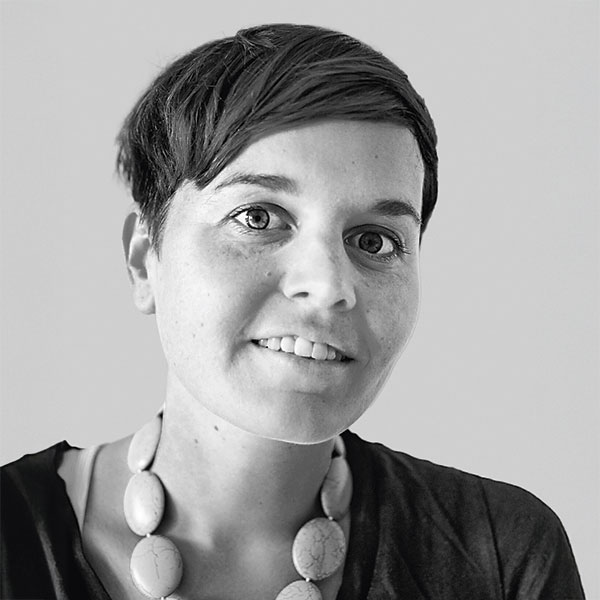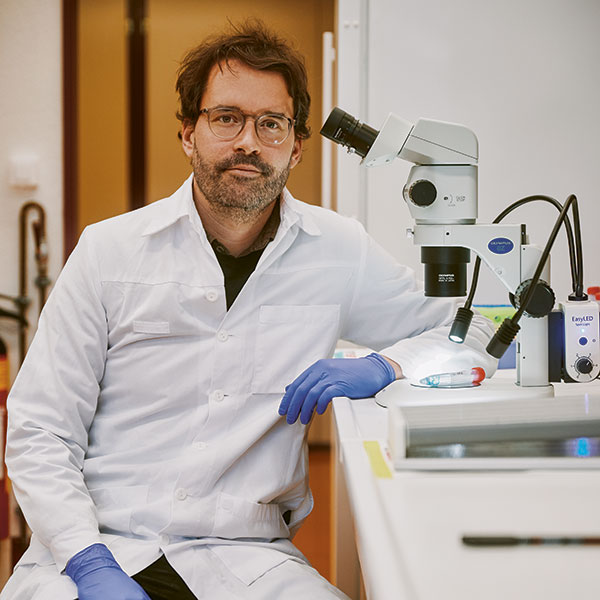DEBATE
Will the planned Future Circular Collider (FCC) be good for Switzerland?

Photo provided by subject

Photo provided by subject
CERN is a flagship of scientific research. Geneva can be proud to house this institution that produces knowledge at the global level. It is precisely as a friend of science that I ask myself about this plan, because any scientific advance must ultimately also meet a requirement of responsibility.
The planned accelerator means decade-long works, the excavation of hundreds of thousands of cubic metres of material, and trucks, dust and noise over many years. Estimates are tens of billions of francs for construction, not counting maintenance or subsequent energy costs. The project would eat up the equivalent of half of the annual electricity consumption of the canton of Geneva. In a world that must now respond to the climate emergency, can we defend such a project without asking ourselves questions?
There is also question of democracy that must also be raised. The Federal Council has launched a sector consultation procedure for the project. The draft is not subject to referendum, which is highly irregular in the Swiss political system. For a project of such magnitude, a decision without public debate is more than problematic. I believe in open and shared science, not in planning done in secret and without the approval of the populations concerned.
Finally, there is the question of priorities. Above all, science needs resources to face the current crises of our system: climatic, social and economic. In this context, the enlargement at CERN seems to miss its target at a time when the very legitimacy of science is being questioned in a worrying way. Progress is not only measured by technological prowess, but also by its ability to be understood, shared and carried collectively.
I’m far from holding an ideological position; it’s above all pragmatic. It’s anchored in a demanding vision of science: not one that’s disconnected from people’s daily lives, but one that respects citizens, democracy, the biodiversity of our regions and the climate just as much as human curiosity.
Delphine Klopfenstein Broggini is a National Councillor for the Geneva Greens and has been involved in debates on the Future Circular Collider for several years.
As a particle physicist, I’m excited about the concept behind the FCC, because it opens up new opportunities to explore fundamental questions about our Universe. Basic research is founded on curiosity. It doesn’t pursue any immediate practical applications, but instead serves to acquire deeper insights. But often, discoveries that initially seem to have no obvious benefit are precisely the things that later lead to significant progress. Particle physics, especially the research conducted at CERN, provides us with numerous examples of this – from using particle beams in treating cancer to particle detectors for imaging or even the development of the Internet itself.
People from all over the world come to work at CERN, developing new experiments and technologies together. This makes CERN a model for successful, peaceful international collaboration, and it plays a decisive role in maintaining Switzerland’s reputation as a centre of cutting-edge research. It’s also an attractive economic partner for Switzerland: industry and service providers receive orders that bring up to three times as much money to Switzerland as we pay in our annual contributions to CERN. So constructing a new particle accelerator is of economic interest. CERN is also a place of learning. Together with universities and research institutes, it’s training the next generation of scientists in a wide range of specialised fields, from physics to engineering and data sciences. The Swiss science scene benefits greatly from this.
The FCC is an extremely ambitious project. But it’s got to be if it’s going to enable ground-breaking discoveries. It will offer a comprehensive programme of physics that will be the only one of its kind in the world. Europe is currently a leader in particle research. The FCC will ensure that this remains the case for decades to come. It will reinforce the idea of joint progress through collaboration – something that’s important today. It will enable Europe in general, and Switzerland in particular, to attract talent from all over the world and carry out innovative research of benefit to us all.
Lea Caminada is Group Leader of High Energy Physics at the Paul Scherrer Institute PSI and a professor at the University of Zurich. She is researching at CERN.

Photo provided by subject
CERN is a flagship of scientific research. Geneva can be proud to house this institution that produces knowledge at the global level. It is precisely as a friend of science that I ask myself about this plan, because any scientific advance must ultimately also meet a requirement of responsibility.
The planned accelerator means decade-long works, the excavation of hundreds of thousands of cubic metres of material, and trucks, dust and noise over many years. Estimates are tens of billions of francs for construction, not counting maintenance or subsequent energy costs. The project would eat up the equivalent of half of the annual consumption of the canton of Geneva. In a world that must now respond to the climate emergency, can we defend such a project without asking ourselves questions?
There is also question of democracy that must also be raised. The Federal Council has launched a sector consultation procedure at CERN. The draft is not subject to referendum, which is highly irregular in the Swiss political system. For a project of such magnitude, a decision without public debate is more than problematic. I believe in open and shared science, not in planning done in secret and without the approval of the populations concerned.
Finally, there is the question of priorities. Above all, science needs resources to face the current crises of our system, climatic, social and economic. In this context, the enlargement at CERN seems to miss its target: at a time when the very legitimacy of science is being questioned in a worrying way. Progress is not only measured by technological prowess, but also by its ability to be understood, shared and carried collectively.
I’m far from holding an ideological position; it’s above all pragmatic. It’s anchored in a demanding vision of science: not one that’s disconnected from people’s daily lives, but one that respects citizens, democracy, the biodiversity of our regions and the climate just as much as human curiosity.
Delphine Klopfenstein Broggini is a National Councillor for the Geneva Greens and has been involved in debates on the Future Circular Collider for several years.

Photo provided by subject
As a particle physicist, I’m excited about the concept behind the FCC, because it opens up new opportunities to explore fundamental questions about our Universe. Basic research is founded on curiosity. It doesn’t pursue any immediate practical applications, but instead serves to acquire deeper insights. But often, discoveries that initially seem to have no obvious benefit are precisely the things that later lead to significant progress. Particle physics, especially the research conducted at CERN, provides us with numerous examples of this – from using particle beams in treating cancer to particle detectors for imaging or even the development of the Internet itself.
People from all over the world come to work at CERN, developing new experiments and technologies together. This makes CERN a model for successful, peaceful international collaboration, and it plays a decisive role in maintaining Switzerland’s reputation as a centre of cutting-edge research. It’s also an attractive economic partner for Switzerland: industry and service providers receive orders that bring up to three times as much money to Switzerland as we pay in our annual contributions to CERN. So constructing a new particle accelerator is of economic interest. CERN is also a place of learning. Together with universities and research institutes, it’s training the next generation of scientists in a wide range of specialised fields, from physics to engineering and data sciences. The Swiss science scene benefits greatly from this.
The FCC is an extremely ambitious project. But it’s got to be if it’s going to enable ground-breaking discoveries. It will offer a comprehensive programme of physics that will be the only one of its kind in the world. Europe is currently a leader in particle research. The FCC will ensure that this remains the case for decades to come. It will reinforce the idea of joint progress through collaboration – something that’s important today. It will enable Europe in general, and Switzerland in particular, to attract talent from all over the world and carry out innovative research of benefit to us all.
Lea Caminada is Group Leader of High Energy Physics at the Paul Scherrer Institute PSI and a professor at the University of Zurich. She is researching at CERN.



